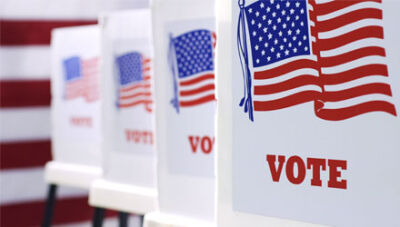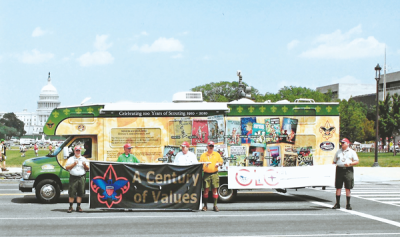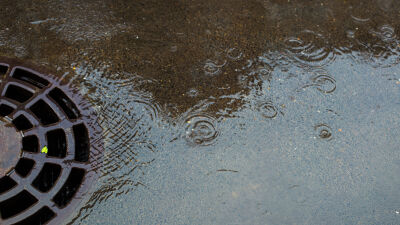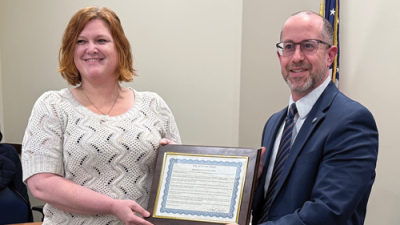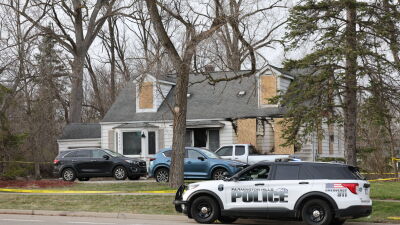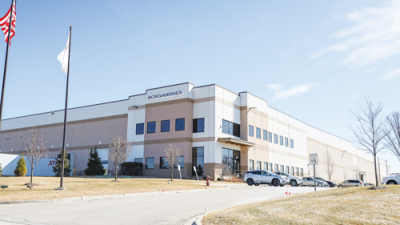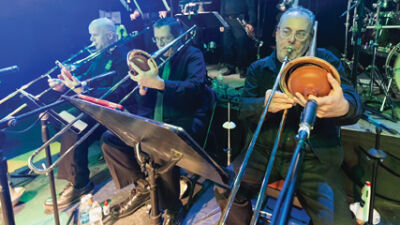GROSSE POINTE PARK — Grosse Pointe Park voters overwhelmingly supported a new 2.5-mill, 10-year levy for water and sewer infrastructure repairs and improvements on the Nov. 8 ballot.
According to unofficial election counts available at press time, the millage was approved by about 62.31% of voters; the remaining 37.69% voted against it.
Approval paves the way for work to begin on these projects in spring 2023, City Manager Nick Sizeland said.
“I can’t thank them enough for this investment,” Sizeland said of city voters.
Residents will see the millage on their tax bills for the first time when the winter taxes are mailed out in December.
“We will be able to go out for bids (early in) the winter and hopefully get better prices (from contractors),” Sizeland said.
In addition, because of the demand for construction and the limited supply of labor and materials, bidding out the project early gives the Park a better chance of getting on contractors’ 2023 schedules, before those are booked for the season.
One of the first projects Sizeland said the city hopes to tackle is separation of storm sewers from sanitary sewers on the section of Jefferson Avenue from roughly City Hall to Lakepointe Street. Other city sewers were separated about 20 years ago, but not this area. Sizeland said this will further dry out the sanitary sewer system, increasing capacity.
Just because the millage was approved doesn’t mean the city won’t still be seeking other funding sources for the multitude of water and sewer upgrades that it hopes to undertake in the coming years.
“We are still going to search for grants,” Sizeland said. “We’re not (an economically) disadvantaged community, so we don’t qualify for most grants.”
The Park also recently applied for a low-interest state loan to pay for some of the work.
The City Council decided to put the millage in front of voters to let them decide on how to fund infrastructure improvements. This work will include the replacement of lead water service lines, which Sizeland said account for an estimated half of all water service lines in the city.
“We firmly believe that this millage was the most transparent way to (support) this project,” Sizeland said.
Voter turnout was strong in the Park, where unofficial vote tallies at press time put it at around 65%.
“I’m glad to see such a good, heavy turnout,” Park resident Pat Deck said as she was leaving the Lavins Activity Center after completing her ballot. “I always consider it such a privilege that I’m allowed to vote and support candidates. It was a long ballot, so it took a long time to make all of your decisions.”
Deck said she preferred the Park’s decision to move all of its election precincts to Windmill Pointe Park, a move that was first implemented for the August primary. She said she’s worked for past elections and remembers sometimes having to direct voters to a different polling location when they showed up at the wrong one. At Windmill Pointe Park, all in-person voters either cast their ballots inside the Lavins Center or the Tompkins Center.
“Even if you go to the wrong place, you don’t have to walk too far,” Deck said.
Deputy City Clerk Courtney Delmege said the city had gotten one complaint about the new polling location.
“Everyone else has loved it,” Delmege said.
Voters at the Lavins Center enjoyed a unique perk: Because the building is home to the city’s two movie theaters, election officials served movie popcorn to anyone who requested some.
“I’ve had a lot of voters saying they like it being at one location,” Park election official Tom Fraser said.
While absentee voting accounted for a little better than half the ballots cast in the Park, election officials were stunned to see that the number of in-person voters was as high as it was, given that people can now vote absentee without needing an excuse to do so.
“It’s definitely a lot higher than I thought it was going to be (at the polls). … It’s been a really big turnout,” Delmege said. “I was a little surprised. We knew it was going to be busy, with the (state) proposals and our proposal. But I’ve already had (election officials at City Hall) bring more ballots to me.”
She said they had plenty of ballots and no problems with any election challengers. On Election Day, Delmege said she even took a ballot to a Park resident who was hospitalized but still wanted to weigh in on the election.
This election marked the first one in which the Park was using new portable voting booths that can accommodate voters with and without disabilities. Delmege said the colorful new booths — all in shades of red, white and blue — arrived shortly before the election. They don’t take up as much room, meaning that the city can set up more of them to reduce in-person wait times, she said.
 Publication select ▼
Publication select ▼